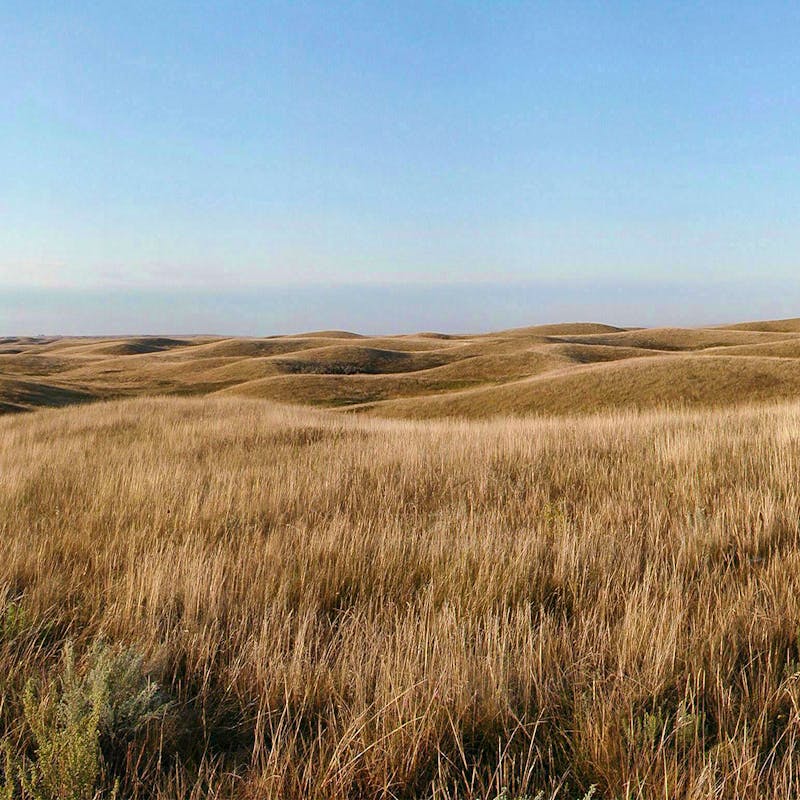Tweet“Allowing coal-leasing on federal lands is tantamount to throwing fuel on the fire of global wildlife extinction. New coal leasing not only has no place in 2024, it should have no place in our future.”
The Ninth Circuit Court of Appeals today ruled that a lawsuit from the Northern Cheyenne Tribe and conservation groups that had successfully reinstated the Obama-era coal leasing moratorium is moot. The ruling effectively eliminates a 2022 district court decision that reinstated the moratorium until the Department of the Interior completed a thorough environmental analysis of the effects of burning coal from public lands. The appeals court decision did not state whether it would allow coal leasing on federal lands to resume.
“The Tribe is disappointed in the court’s ruling, but we will fight tirelessly to protect our Reservation and its air and waters and the Cheyenne way of life,” said Northern Cheyenne Tribal Administrator William Walksalong. “Now that the court has ruled that the Trump administration decision to restart coal leasing was revoked, we need the Biden administration to step up and live up to its promises to protect our climate, conduct a long overdue review of the federal coal leasing program and make thoughtful plans for the future of public lands.”
The Obama administration imposed the leasing moratorium in 2016 out of recognition that steps were needed to limit climate change and other harms from coal mining. In 2017, Trump’s Interior Secretary, Ryan Zinke, restarted coal leasing and abandoned efforts to reform the federal coal program. While the Biden administration revoked the Zinke order in 2021, Interior officials said at the time that its action did not reinstate the moratorium. The 2022 district court ruling found that the Zinke order served to reopen public land to coal leasing and that DOI must consider the environmental effects of that broad decision. Industry groups appealed that ruling to the Ninth Circuit and argued that the decision to revoke the Zinke order rendered the case moot. In its decision today, the appeals court agreed with industry and dismissed the lawsuit that formed the basis for the district court’s 2022 ruling. As a result, coal leasing on federal lands could resume, although the effect of the Ninth Circuit’s decision on future leasing is not immediately clear.
The Northern Cheyenne Tribe and conservation groups have urged the Interior Department to take additional steps to address coal leasing on federal lands. The Tribe and groups want DOI to again pause all new federal coal leases and lease modifications on public lands, arguing that the department should go further to begin phasing out existing leases to prevent ongoing harm to the climate, air, water, and public health.
“Allowing coal-leasing on federal lands is tantamount to throwing fuel on the fire of global wildlife extinction,” said Michael Saul, Rockies and Plains program director at Defenders of Wildlife. “New coal leasing not only has no place in 2024, it should have no place in our future.”
“This disappointing decision only highlights the need for decisive federal action to end coal leasing and phase out coal mining on federal lands,” said Jenny Harbine, managing attorney for Earthjustice’s Northern Rockies Office. “While this ruling could allow leasing to resume, the Department of the Interior should take immediate steps not just to end new leasing, but also to address the ongoing harm to our climate, health, and communities from irresponsible coal mining on federal lands.”
“While the court may have decided that this case is moot, the issues involved are very much alive,” said Anne Hedges, co-director of the Montana Environmental Information Center. “The federal coal leasing program is in desperate need of a fundamental overhaul that accounts for the harm caused by an antiquated coal leasing system that ignores climate change, water resources, and the value of public lands. The Biden administration has promised action on the climate, as well as protecting people and natural resources from the destructive nature of fossil fuel extraction. We expect them to make good on that promise regardless of any particular court decision.”
“This decision could throw the doors open to coal leasing on federal lands at the very same time that we need to be rapidly transitioning to clean energy,” said Taylor McKinnon with the Center for Biological Diversity. “There’s no safe climate future with the federal coal program. It needs to end. The Interior Department must act now to make sure that happens.”
“Almost ten years ago under President Obama, we were promised there would be an honest conversation with the American people about the real costs of the federal coal program on our public lands and public health. We're still waiting for that conversation,” said Rob Joyce, acting director of Wyoming Sierra Club. “Now we have less than a decade to make significant cuts to climate pollution to avoid the worst impacts of climate change. Instead of leasing coal to the highest corporate bidder, BLM needs to focus on helping coal communities transition to clean energy jobs and setting a conservation-minded course that preserves public lands for future generations.”
“This decision at this point in the climate crisis is deeply disappointing,” said Samantha Ruscavage-Barz, legal director for WildEarth Guardians. “We’re running out of time to prevent irreversible climate devastation to people and the planet, yet the door is now open to ramp up dirty energy production. BLM needs to step up to do what’s right, rather than continuing to submit to industry pressure.”
Earthjustice represents the Northern Cheyenne Tribe, Citizens for Clean Energy, Montana Environmental Information Center, Center for Biological Diversity, Sierra Club, WildEarth Guardians, and Defenders of Wildlife in the case.
For over 75 years, Defenders of Wildlife has remained dedicated to protecting all native animals and plants in their natural communities. With a nationwide network of nearly 2.1 million members and supporters, Defenders of Wildlife is a leading advocate for innovative solutions to safeguard our wildlife for generations to come. To learn more, please visit https://defenders.org/newsroom or follow us on X @Defenders.
News

Study Led by Defenders of Wildlife Scientist Shows Noise Pollution Impacts on Migratory Birds





